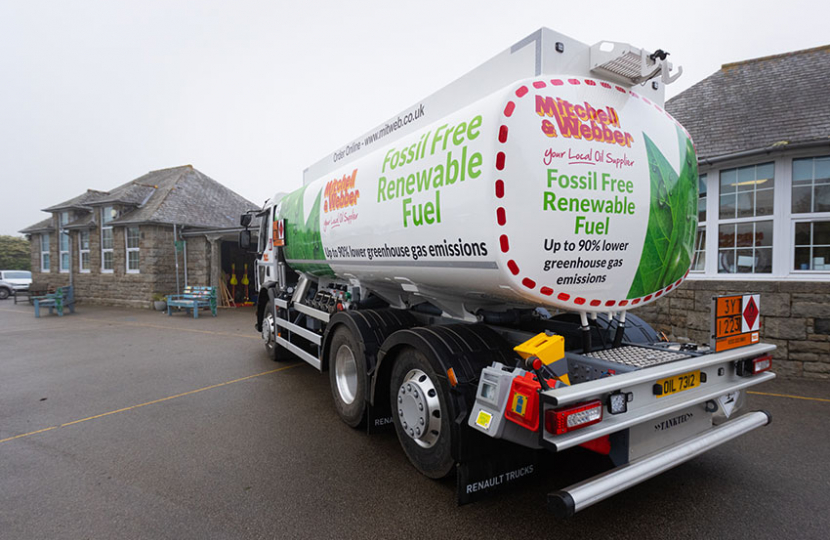
Here is the key ingredient that could help rural homes reach net zero
For just a couple of hundred pounds, existing boilers in country properties can be converted to run on hydrotreated vegetable oil
GEORGE EUSTICE, Telegraph, 7 August 2023 (Link)
The recent debate about net zero within the Conservative Party is less about the importance of reducing our carbon emissions, but much more about the way in which we get there. The recent wildfires in Europe and floods in China are a further reminder, if needed, of the importance of coordinated global action.
However, an array of new technologies and solutions are developing at pace and the real risk to the delivery of net zero lies in locking down prematurely to the wrong policy mix.
The Government is assailed with an endless stream of reports from academics, green lobby groups and even the Climate Change Committee, all inciting the Government to lock into particular technologies right now because they think it makes the achievement of net zero more certain.
They are wrong. To pick winners today is to shut down all the other innovation taking place and the Prime Minister is right to push back. Instead, we need to create the space for different ideas and approaches to have room to develop to future-proof delivery.
One such area where we see this problem relates to the policy approach to the UK’s 1.7 million rural homes which are off the gas grid and rely on kerosene boilers.
In 2017, the Government introduced the “Green Growth Strategy” which concluded that there should be a concept of “electrification first” in such homes. It is a hopelessly out-of-date policy, but the stance has remained despite the development of better alternatives.
The Government plans to ban the installation of replacement boilers in all such homes from 2026 and to force residents in rural communities to invest in expensive air-source heat pumps. The cost is about four times that of a boiler. Rural communities are about to have their own version of London’s ultra-low emission zone dumped on them.
Furthermore, in coastal areas, the equipment can be prone to decay and rusting. Heat pumps require a lot of additional insulation which can also cause a lack of ventilation. In some old properties, reducing ventilation increases the risk of mould and associated health problems.
There is a better way. In recent years, great progress has been made in improving the performance and expanding the supply of renewable liquid fuels. For just a couple of hundred pounds, an existing kerosene boiler can be converted to run-on hydrotreated vegetable oil made from waste cooking oil or vegetable waste.
Facilitating that switch would reduce carbon emissions by 88 per cent far faster than the current approach could and at a fraction of the cost. It is exactly the sort of innovative solution this government should back and exactly why we should not feel constrained by the dogma of outdated strategies.
When the Energy Bill returns to Parliament this autumn, I hope the Government takes the opportunity to change its approach and support rural communities.
More Information here: https://www.telegraph.co.uk/news/2023/08/08/net-zero-oil-boiler-ban-con…

